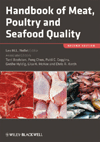In its first-ever lab analysis of ground turkey products, Consumer Reports found potential disease-causing organisms in most of the samples it tested, many of which proved resistant to more than three antibiotic drug classes. Consumer Reports tested 257 samples purchased from stores nationwide.
"Our findings strongly suggest that there is a direct relationship between the routine use of antibiotics in animal production and increased antibiotic resistance in bacteria on ground turkey. It's very concerning that antibiotics fed to turkeys are creating resistance to antibiotics used in human medicine," said Dr. Urvashi Rangan, Director of the Food Safety and Sustainability Group at Consumer Reports. "Humans don't consume antibiotics every day to prevent disease and neither should healthy animals. Prudent use of antibiotics should be required to stem the public health crisis generated from the reduced effectiveness of antibiotics."
Consumer Reports purchased 257 samples of raw ground turkey meat and patties, including products from major retailers and store brands, and tested them for the presence of five bacteria: Enterococcus, Escherichia coli (E. coli), Staphylococcus aureus, Salmonella, and Campylobacter. Below are some key findings.
- Overall, 90 percent of the samples had one or more of the five bacteria for which they were tested.
- Bacteria on ground turkey products labeled "no antibiotics," "organic," or "raised without antibiotics" were resistant to fewer antibiotics overall than bacteria found on conventional products.
- Bacteria related to fecal contamination were found on the majority of samples. Sixty-nine percent of ground-turkey samples harbored Enterococcus, and 60 percent E. coli.
- Three samples were contaminated with methicillin-resistant Staphylococcus aureus (MRSA).
- Salmonella, which is one of the top causes of foodborne illness, was found in 12 of the samples tested (5 percent) and two-thirds of them were multidrug resistant; government studies typically find higher rates of Salmonella, at around 12 percent. Processing plants are permitted by the government to have product contamination rates as high as 49.9 percent.
- Consumer Reports also found much more resistance to classes of antibiotics approved for use in healthy turkeys to promote growth and prevent disease than for those not approved for such uses
The National Turkey Federation issued a statement calling the report “alarmist” and noted the small sampling size.
"Consumer Reports had the opportunity to foster a serious, thoughtful discussion about food safety, but instead it chose to sensationalize findings and mislead people," said NTF President Joel Brandenberger.
The NTF pointed to several issues in the magazine's findings:
- The magazine reported high levels of certain pathogens on the samples tested, but it is important to note that the two most prevalent, Enterococcus and generic E.coli, are not considered sources of foodborne illness.
- By contrast, for the two pathogens of public health concern—Campylobacter and Salmonella—the magazine found almost no prevalence (5 percent for Salmonella and zero Campylobacter). This is borne out by more extensive government testing, which finds almost 90 percent of all ground turkey and 97 percent of whole turkeys are Salmonella-free. While the turkey industry strives to control all bacteria on its products, it focuses primarily on those bacteria that present the greatest threat to human health.
- The article is misleading about the significance of its antibiotic findings. One of the antibiotics for which it tested (ciprofloxacin) has not been used in poultry production for almost eight years, meaning resistance is highly unlikely to be from farm-animal use, and two other drug classes (penicillin and cephalosporin) are used infrequently in animal agriculture. The fourth drug class tested by Consumer Reports, tetracycline, is used in animal agriculture, but is a largely insignificant antibiotic in human medicine, comprising only four percent of all antibiotics prescribed by physicians.
- The article stated three samples contained methicillin-resistant staphylococcus aureas (MRSA). Understandably, this is cause for concern, but the article fails to put MRSA and E.coli in context. These bacteria are ubiquitous in the environment, and are even present on our hands and in our bodies.
NTF Vice President of Scientific and Regulatory Affairs Lisa Picard, said, "Enterococcus and generic E.coli are everywhere, and there is more than one way they can wind up on food animals. In fact, it's so common in the environment, studies have shown that generic E.coli and MRSA can even be found on about 20 percent of computer keyboards."
The American Meat Institute also commented on the report, noting that while the magazine chose to focus on four bacteria its labs did find, the more important story is about the pathogenic bacteria of public health concern that they didn’t find or found at remarkably low levels.
None of the 257 samples were positive for Campylobacter and only five percent were positive for Salmonella – one tenth the regulatory limit of 49 percent.
“These findings are extremely encouraging,” said AMI Foundation Chief Scientist Betsy Booren. “When food safety issues have been linked to ground turkey, they have typically been caused by either Campylobacter or Salmonella. Consumer Reports test results show that the food safety systems used by turkey processors are working to destroy these bacteria.”
The complete report and analysis can be found in the June 2013 issue of Consumer Reports and online at www.ConsumerReports.org.
Source: Consumer Reports, NTF, AMI









